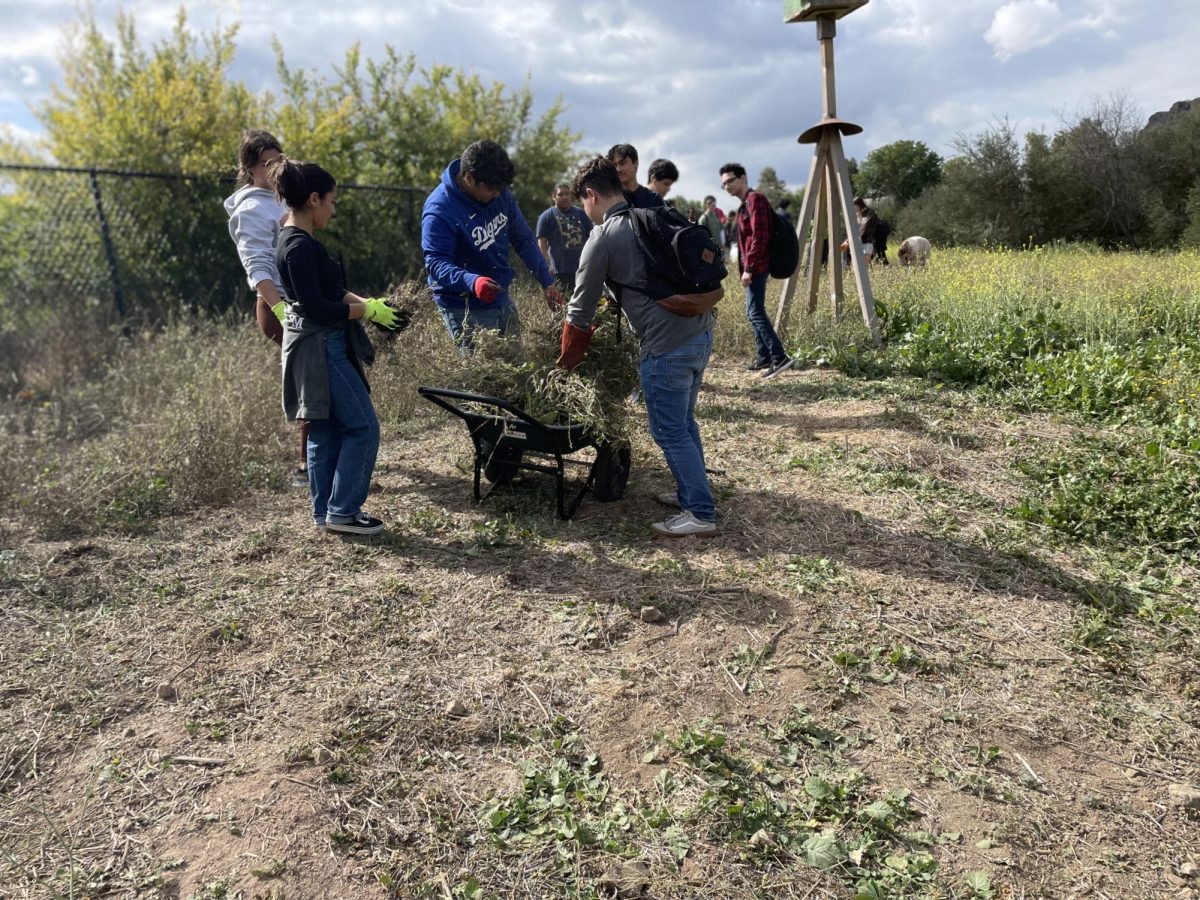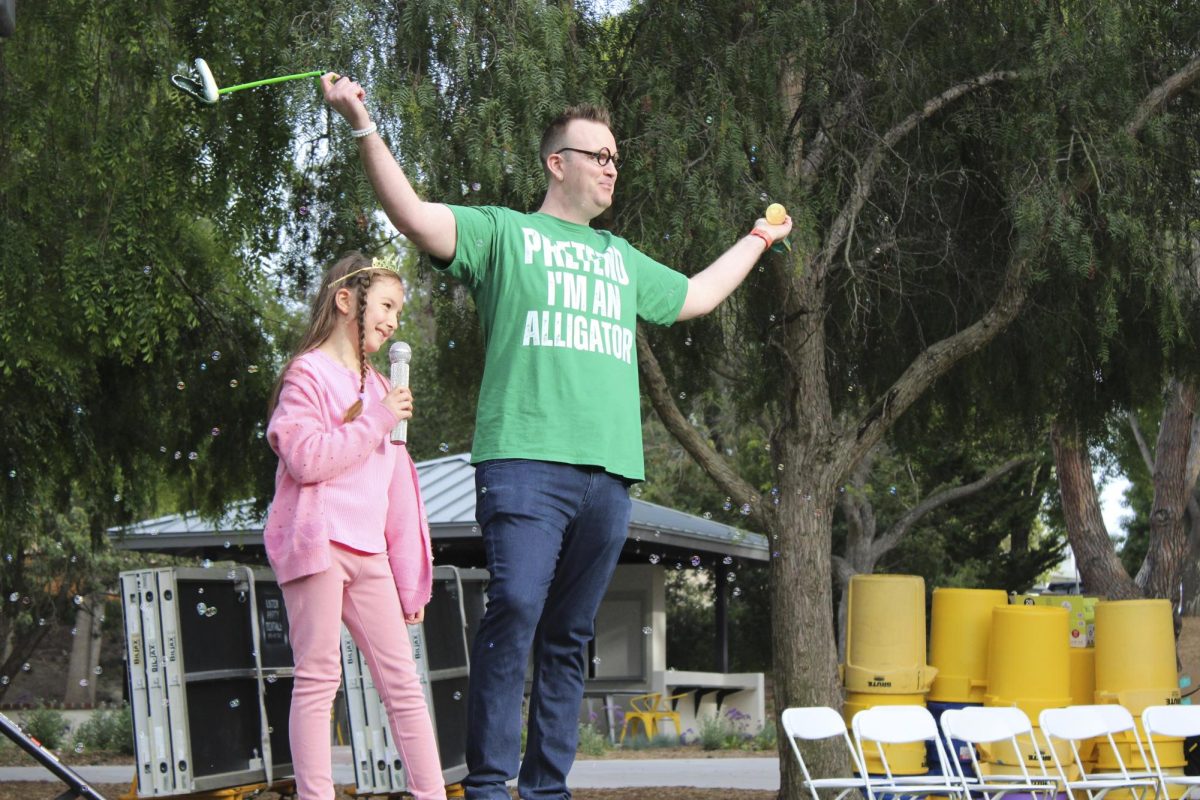The First-Year Writing Program and the Sustainable Edible Education Garden collaborated from Monday, Oct. 23 to Friday, Oct. 27 to promote a food justice in Ventura County-themed volunteer week.
The First-Year Writing Program is part of the English Department, and Professor and Director of the First-Year Writing Program, Jolivette Mecenas, said the goal of the project was to provide English-110 students an experiential learning volunteer opportunity.
Mecenas said every fall semester, she has a common reading theme across all English-110 sections, and that this semester’s theme is food justice.
“We thought ‘what better place than the SEEd garden?’ Working with Dr. Fung, we came up with a volunteer week and to have as many English-110 students as possible come in and spend some time in the garden,” Mecenas said.
Senior Jacob Carroll, greenhouse and raised bed manager for the SEEd Garden, led workshop tours during the week and said he is grateful for the volunteer students from the English Department.
“There’s so many volunteer opportunities. You get to weed your raised beds, the outdoor classroom in the flower garden and the interior garden,” Carroll said. “You can trim plants and help us, there’s so many things like compost and mulch. We never run out of things to do.”
Students were assigned papers about food justice and related environmental topics, Mecenas said, and were able to use reflections about their time in the garden.
Mecenas said she wants students to understand the idea of sustainable edible education, and what it means to grow food locally with the garden that is available on campus.
“We’re always looking for ways to collaborate, and this has been a rich area because a lot of us in the English department are concerned or interested in sustainability issues and climate change,” Mecenas said.
Carroll said he finds the community aspect of the garden a nice bonus, and likes that the garden is open to volunteers from the community as well as students.
Volunteers, Carroll said, can come and pick fresh vegetables and herbs, spend time in the outdoor classroom and look at the chickens.
“We try to keep it open as much as possible so people can come in and just spend time in the garden,” Carroll said.
First-year and Criminology and Criminal Justice major Alan Castillo, who was a volunteer worker at the event, said this is his first time visiting the SEEd garden.
“I did a lot of volunteer work with churches in my area and also did some animal hospital work but that’s about it,” Castillo said. “It’s getting my hands dirty, I’m a very hands-on person so gardening is very much a big part of that.”
Mecenas said she is pleased that there were students volunteering at the event who have never worked in a garden before, and other students who have worked on either gardens or farms.
According to Mecenas, she is thinking about ways to secure additional grants for the SEEd garden.
“I, personally, have brought my English-110 class into the garden on my own just to do some writing, and that’s where it started for me, thinking ‘Wouldn’t it be great to get more students in here?’” Mecenas said.
Mecenas said the volunteer week has prepared the garden for next month’s event, where an indigenous activist and leader will be performing a white sage planting in the weeded area that was cleared by students.
Additional information about the SEEd Garden, including signing up for opportunities, can be found on Cal Lutheran’s webpage.












